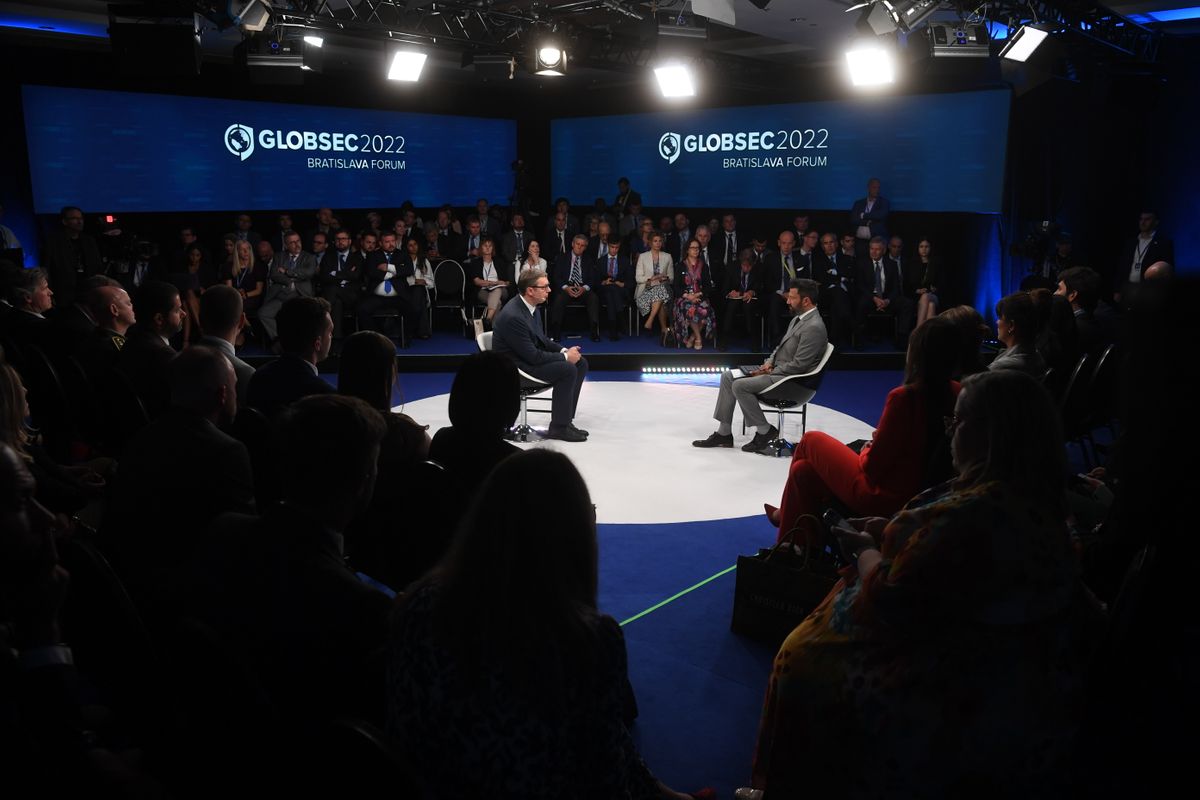
Serbia depends on Russian gas for now, but is open to other options
Serbia is working on diversifying its energy dependence, but until that happens, it will use exclusively Russian gas, Serbian President Aleksandar Vucic said in Bratislava at a security meeting, in which Serbia-EU relations were also discussed.
Serbia sticks with Russian gas for the time being
An international security policy conference has been held in Bratislava. The parties discussed the Russia-Ukraine war and its economic consequences. A separate panel, also attended by Serbian President Aleksandar Vucic, dealt with the relations between Serbia and the EU. The Serbian president emphasized that the primary goal of his country was EU integration, but that the populace and the economy would not survive without gas imports.
“We have always been 100% dependent on Russian gas, just like other EU countries. Serbia is working on eliminating its full dependence,”
the Serbian president said in response to a question why the country entered into a long-term gas contract with Russia in the middle of the war. Unlike EU countries, Serbia has not introduced sanctions against Russia, but has taken a political position similar to the EU in recognising Ukraine’s territorial integrity and sovereignty.
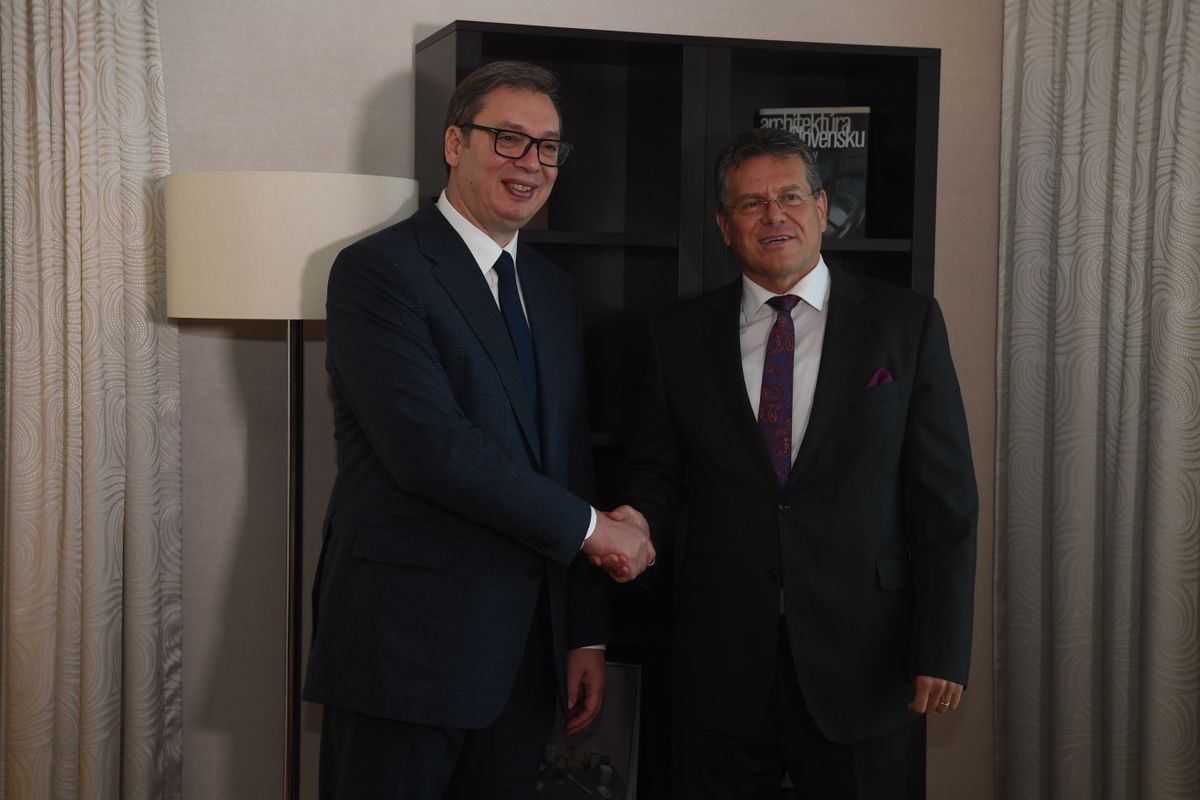
Photo: Serbian president (left)
President Vucic met with European Commission Vice-President Maros Sefcovic in Bratislava. The two discussed how Serbia could gain access to Azeri gas. They noted that a strategy was needed for the Balkan country to connect to the TANAP, the Trans-Anatolian natural gas pipeline, running through Turkey. It is the middle section of the Southern gas corridor, connecting the huge gas fields in Azerbaijan with Europe through the South Caucasus and the Trans Adriatic Pipelines. Serbia would connect to the latter one, thereby gaining access to Azeri gas instead of, or in addition to Russian. For that, however, infrastructure is needed between Serbia, Bulgaria and North Macedonia.
„We can find an alternative to Russian gas when that infrastructure is in place. It will provide us with the option to buy natural gas from other sources. I know that no one is satisfied with this answer now, but we have to survive and make rational decisions. There is hysteria in the world at the moment, making it very hard to talk about anything in a rational manner,” the Serbian president noted.
US liquid natural gas will not cover Bulgarian needs
Bulgaria is not receiving Russian gas any more. The country’s government expects that they can cover domestic demand from LNG supplied by the US, despite the fact that several other countries have also announced their intention of purchasing the liquid natural gas arriving to ports in Greece. Analysts say, however, that the capacity of the infrastructure under construction will not be sufficient to meet those demands. It may be an auxiliary solution, but will not solve the issue.
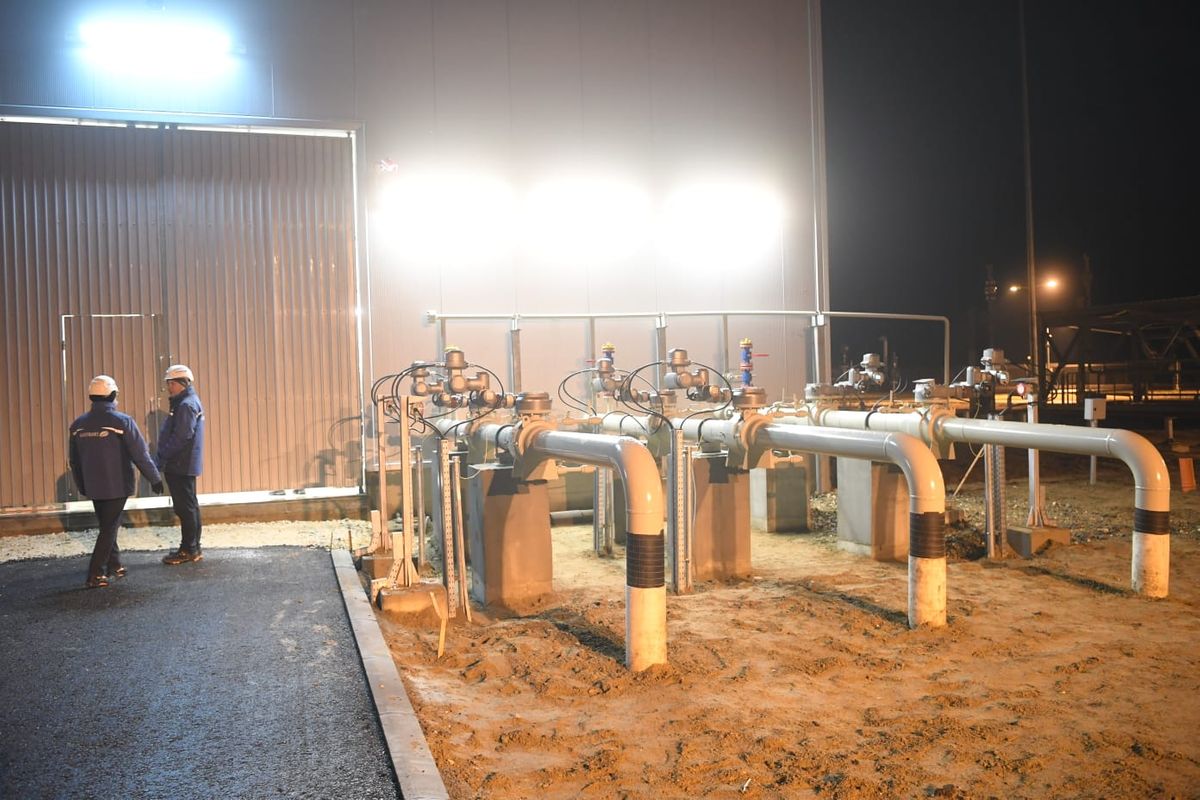
Photo: President of Serbia
Aleksandar Vucic expressed his doubts that Bulgaria will have enough gas for the winter, but trusted that the neighbouring country will succeed in realising its plans sooner or later. Mr Vucic said that Hungary also uses gas coming from Russia.
„Undoubtedly, there won’t be enough natural gas for us all. I visited [the Azeri capital] Baku six years ago, where I met with the president of Azerbaijan. He told me even back then that they were unable to meet our demands of natural gas, and our consumption has tripled since then,”
Mr Vucic said. The Serbian president, however, expressed his hope that his country will have access to some of the gas arriving on the gas pipelines under construction.
Serbia’s strategic goal is EU accession
Serbia would like to become a member of the European family; this is the most important goal of the country, the Serbian president said in the Slovakian capital. As opposed to current member states, Belgrade also has to meet specific criteria, such as settling its relations with Kosovo. Serbia regards Kosovo as its southern province, although the country has declared its independence, which Western powers also recognise. Serbia is trying to reach a compromise through negotiations, Kosovo, however, only wants to talk about mutual recognition.
Countries in the Western Balkans have been following the road to EU integration with fits and starts, with no significant progress expected in the EU-Western Balkan conference in June either, the Serbian president emphasized. He added that a decision on accelerating the process may be made in December, but that requires a unanimous decision by Brussels, Paris and Berlin, he underlined.
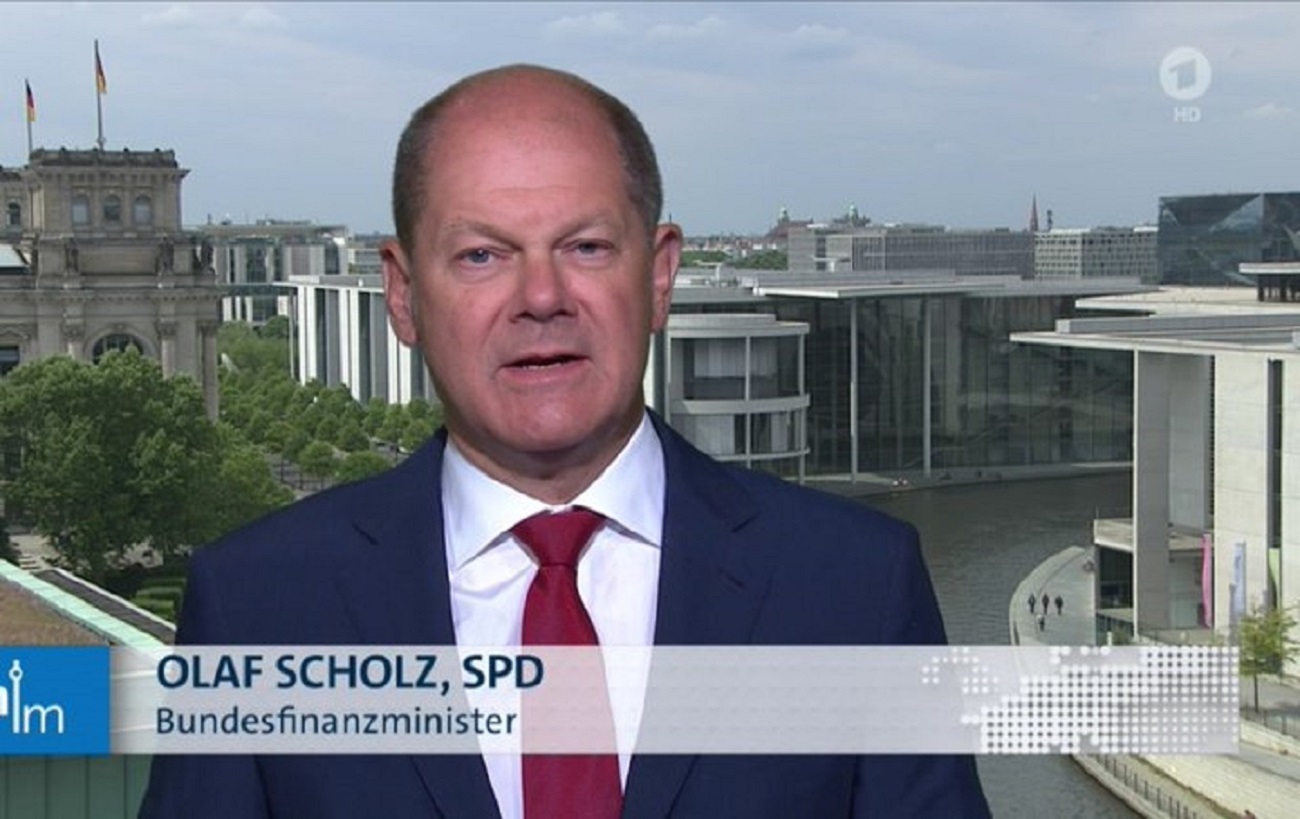
German Chancellor Olaf Scholz and the Serbian government will presumably discuss the relations between Serbia and the EU in a meeting on 10 June next week. Mr Vucic and Mr Scholz have talked several times in the past few weeks, and the German defence minister has also visited Belgrade. Some analysts say that Germany aims to strengthen its influence in the region and looks upon the good Russo-Serbian relations with contempt.
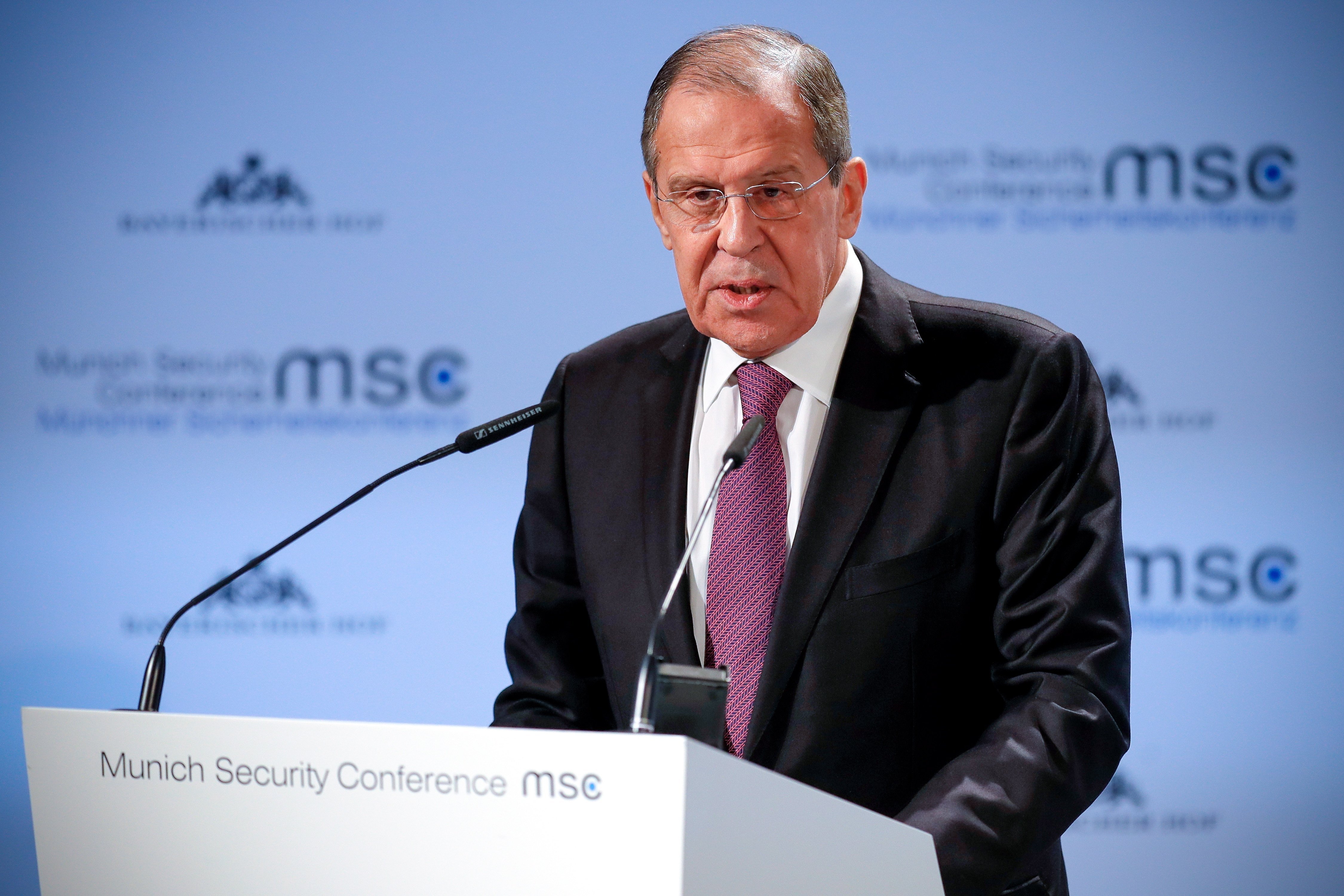
Russian Foreign Minister Sergei Lavrov is also expected to visit the Balkan country on 7 June, before the German chancellor.
„FM Lavrov’s visit complicates the situation in every respect, but I can’t say anything else about it yet. The outcome of the talks with the Russian minister is a big question, but we’ll see what happens,”
the Serbian president said. Some say that if Mr Lavrov indeed visits Serbia in the middle of next week, the German chancellor may cancel his trip scheduled for three days later. Mr Vucic said such an outcome would be very bad news for his country and expressed hope that it would not happen. He said that the real question was whether the leader of Russian diplomacy would visit Belgrade or not.

